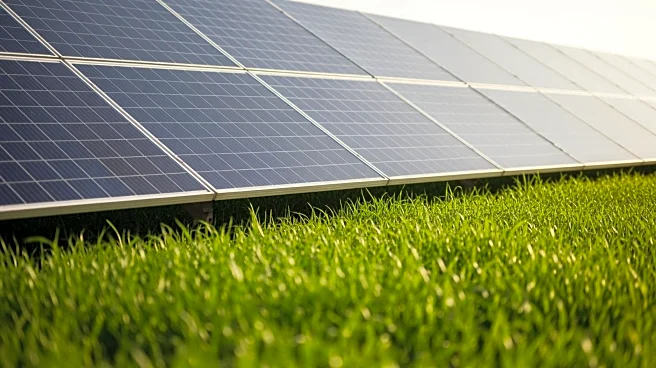What's Happening?
The United Nations Development Programme (UNDP), in collaboration with Nigeria's Rural Electrification Agency (REA) and the Global Environment Facility (GEF), has launched a 50kWp solar mini-grid in Plateau
State, Nigeria. This initiative aims to provide reliable and clean energy to rural communities, enhancing agricultural productivity and supporting small-scale enterprises. The mini-grid will benefit over 1,555 individuals, including women involved in rice processing and local equipment operators, by powering schools, health centers, and microenterprises.
Why It's Important?
The solar mini-grid project addresses critical barriers to rural development in Nigeria, such as energy poverty and limited access to processing facilities. By providing stable electricity, the initiative supports agricultural value chains, enabling farmers to improve product quality and increase incomes. This development aligns with Nigeria's broader policy framework and contributes to the country's climate commitments under the Paris Agreement. The project demonstrates the potential of renewable energy to drive economic growth and social development in rural areas.
What's Next?
The success of the solar mini-grid in Plateau State could serve as a model for similar projects across Nigeria and sub-Saharan Africa. The initiative is part of the Africa Minigrids Programme, which plans to deploy 25 solar mini-grids in Nigeria, focusing on productive-use electrification. This approach links energy access directly to income-generating activities, potentially attracting private investment and reinforcing community ownership. The project may inspire further efforts to integrate renewable energy with agricultural processing, breaking cycles of energy poverty.
Beyond the Headlines
The solar mini-grid project highlights the intersection of energy access, gender equity, and climate action. By empowering women and supporting local economies, the initiative contributes to sustainable development goals. It underscores the importance of inclusive infrastructure development in addressing systemic challenges in rural areas, offering a pathway for communities to transition away from carbon-intensive fuels.









